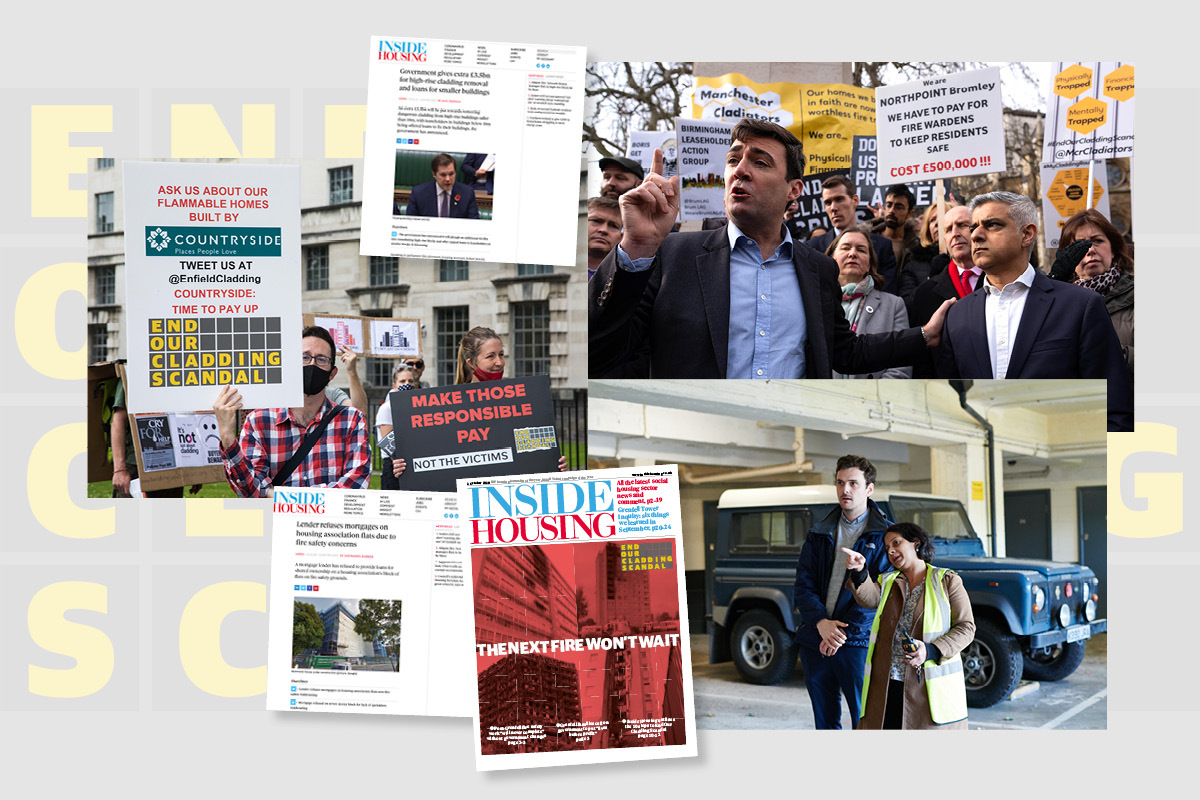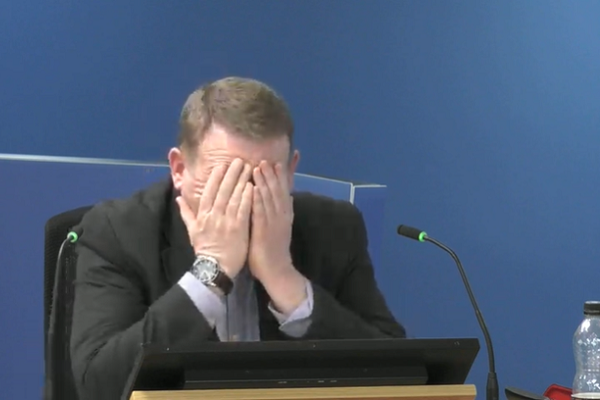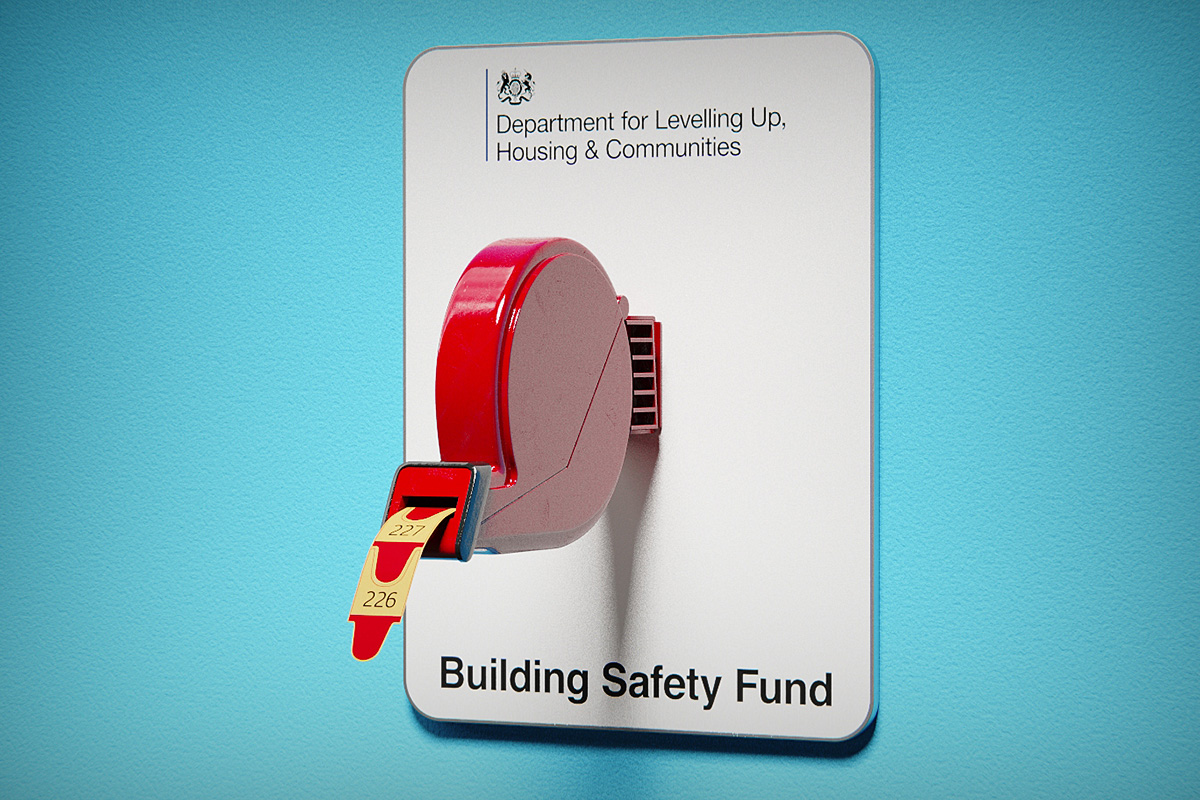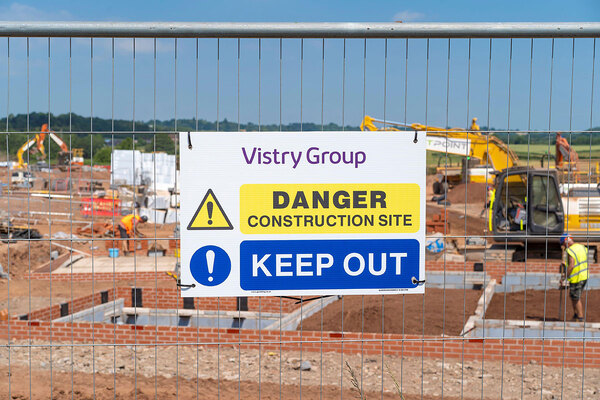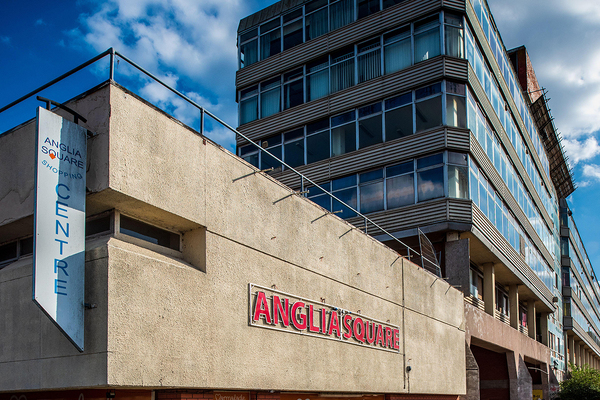You are viewing 1 of your 1 free articles
Building Safety Levy extended to all buildings as 35 developers sign pledge to fund fire safety fixes
The government has announced that it will extend the Building Safety Levy to raise an additional £3bn as 35 developers sign up to a pledge that will see them fix buildings they have constructed that have fire safety issues.
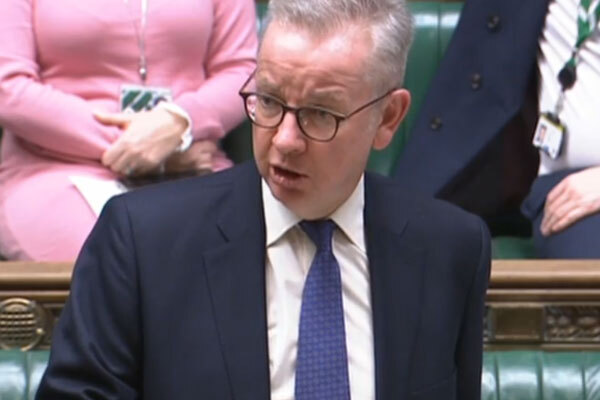
In a statement this morning, ministers have confirmed that the Building Safety Levy will be extended to cover new residential buildings in England of all sizes, which is expected to raise an additional estimated £3bn over 10 years.
It comes as the government revealed the list of builders that have signed up to the pledge, which is expected to see them carry out around £2bn of work to fix any blocks they have built over the past 30 years.
The list includes major house builders embroiled in the building safety crisis, such as Barratt, Berkeley, Bellway and Ballymore, as well as other medium-sized builders (see list below).
As part of the pledge, developers have agreed to “undertake or procure at its own costs… as quickly as reasonably possible all necessary remediation and/or mitigation work to address life-critical fire safety defects”.
This includes buildings they have developed on behalf of social landlords as part of Section 106 agreements.
The announcement today has also seen the government commit to extending the Building Safety Levy so that it will be chargeable on all residential buildings.
The levy, which developers will have to pay when seeking planning permission for a block, previously only covered buildings taller than 18 metres.
The £3bn extended levy is expected to raise will be used to pay for ‘orphan blocks’, where the developer responsible for the construction cannot be identified and or forced by law to pay.
This will be in place alongside the previously announced Residential Property Tax, which will be levied against developers with profits over £25m and is expected to raise £2bn over the next 10 years.
In addition to the new money, the pledge will also see builders commit to reimbursing the government for any money it has committed to their blocks through the £1bn Building Safety Fund, or the £200m aluminium composite material (ACM) remediation fund.
Builders have vowed to ensure that within one month it will contact all relevant building owners and leaseholders to confirm that their blocks will be covered by this letter.
Housing secretary Michael Gove has warned those developers that have failed to sign up that they will face consequences if they continue to do so.
In February, the government threatened to “shut down” developers if they failed to agree to the government’s new plan, including orders to prevent house builders which refuse to pay from receiving planning permission commencement or building control sign off for their projects.
Commenting today on the latest developments, Mr Gove said it marked a significant step towards protecting leaseholders and ensuring those responsible pay to solve the crisis.
He added: “But this is just the beginning. We will do whatever it takes to hold industry to account, and under our new measures there will be nowhere to hide.”
The commitment by developers is the latest chapter in the building safety crisis and follows the ultimatum given by Mr Gove in January which called on developers to commit to remediating all of their buildings that are taller than 11 metres, as well as provide an additional £4bn in funding to remediate cladding on all outstanding buildings between 11 and 18 metres.
This is on top of the £5.1bn already been committed by the government through the Building Safety Fund for non-ACM materials on buildings taller than 18 metres.
The latest pledge has seen house builders commit to fixing all “life-critical fire safety” issues, which the government has confirmed will cover both cladding and non-cladding issues. When asked for the definition of ‘life-critical fire safety’, the department said that these would be based on the new PAS 9980 standard for fire safety.
In addition to cladding issues, leaseholders up and down the country have been threatened with costs to pay for other fire safety defects such as missing cavity barriers and other compartmentation issues.
In February, Mr Gove proposed new legislation that would seek to make developers and manufacturers pay for non-cladding remediation work, then move on to freeholders if they have means to do so.
If these were unsuccessful, leaseholders would then be required to pay these costs, but with a cap of £15,000 for those living in London and £10,000 for those outside of London.
This will be part of the Building Safety Bill, which is currently going through parliament before being made law.
In addition to securing funds from builders, the government said today that cladding and material manufacturers are yet to come forward and contribute to fixing the crisis and that it would be bringing them to account.
Mr Gove has now written to the Construction Products Association, stating that it was “unacceptable” that the manufacturing industry has not made a commitment like the developers and promised to pursue these companies through its new recovery unit.
He also said that he would consider using other powers at his disposal to ensure that there are “significant commercial and reputational consequences for those firms that have not stepped up”.
In response to the new commitment from developers, Rhys Moore, executive director of public impact at the National Housing Federation, said: “This agreement marks great progress made by the secretary of state in ensuring that innocent leaseholders are not met with crippling and unjust costs.
“It is right that all developers who built these homes take responsibility and this must include paying to make buildings safe where social housing residents live. By paying to fix their mistakes, developers can protect people on low incomes from footing the costs, and ensure the future supply of affordable housing.”
David Renard, housing spokesperson at the Local Government Association, said the organisation was “pleased” with the announcement, but called on ministers to ensure councils are exempt from the levy.
Developers which have agreed to the pledge
- Avant Homes
- Ballymore
- Barratt
- Bellway
- Berkeley
- Bewley
- Bloor Homes
- Cala
- Churchill Retirement
- CG Fry
- Countryside
- Crest Nicholson*
- Croudace
- Davidsons
- Fairview
- Gleeson
- Hill Group
- Jelson
- Keepmoat Homes
- Tilia Homes
- Lioncourt Homes
- London Square
- Lovell
- Mactaggart & Mickel
- McCarthy Stone
- Miller Homes
- Morris Homes
- Persimmon
- Redrow
- Rowland Homes
- Strata
- St Modwen
- Taylor Wimpey
- Vistry Partnership
- Wainhomes
- William Davis Homes
*Signalled intent
Sign up for our fire safety newsletter
Already have an account? Click here to manage your newsletters
